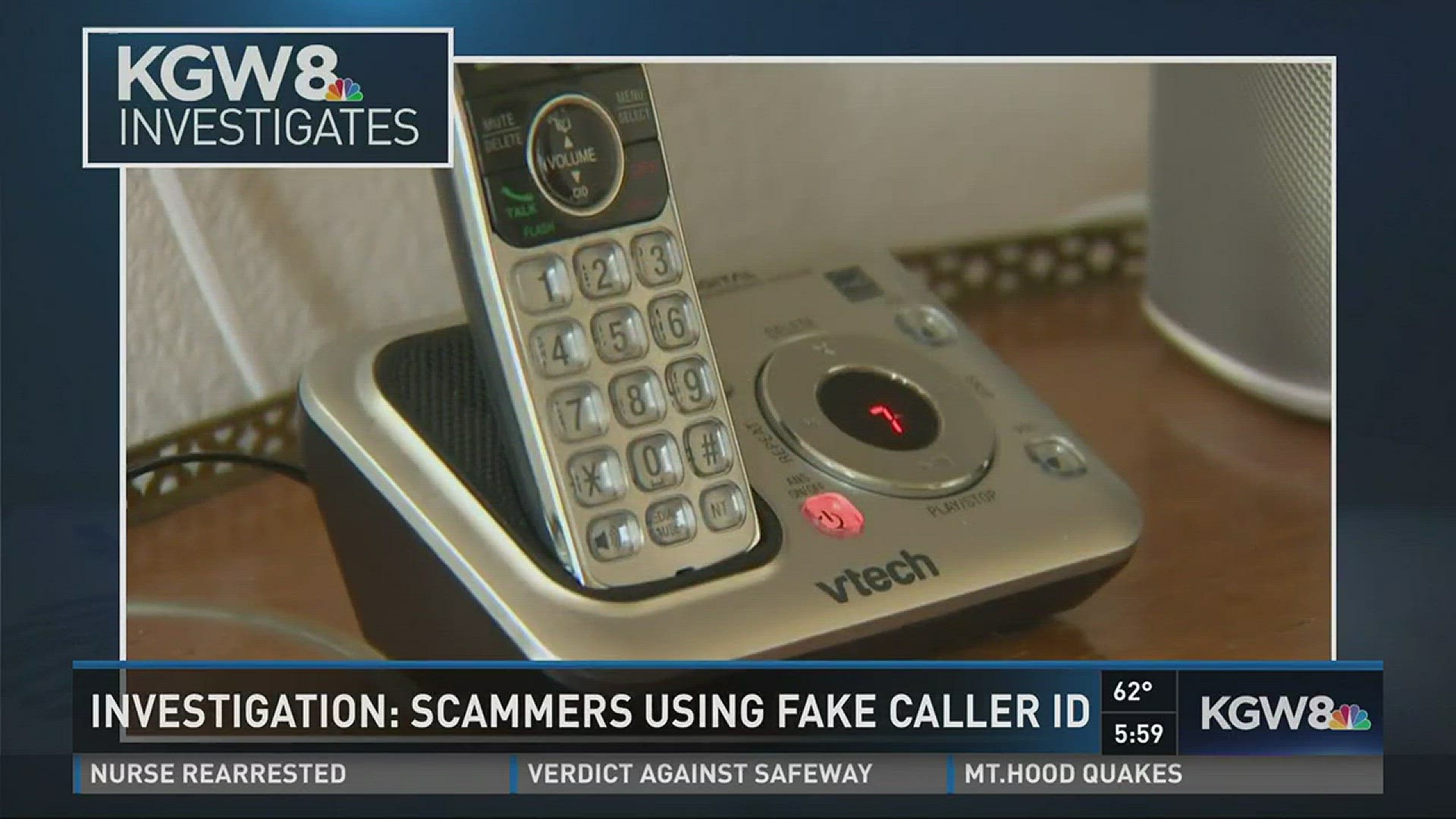Portland, Ore. — Scammers have a new trick when it comes to telemarketing.
They’re using fake caller ID to fool consumers into thinking they’re local or someone you trust.
The tactic is called “Spoofing.”
“It’s become much more common the last couple of years,” said Charles Harwood, regional director of the Federal Trade Commission. “We get literally thousands of complaints now about spoofed calls.”
Portland resident Janice Parker got a call from a scammer claiming to be from the Internal Revenue Service.
“The reason of this call is to inform you that IRS is filing a lawsuit against you,” said the female voice on the phone.
The fraudster used a Washington, D.C. phone number.
“They think people are going to believe this is legit because of where they are calling from,” Parker said.
She didn’t fall for the trick.
Fraudsters use technology to create a fake caller ID. They can dial anywhere in the world, making it look like the call is coming from the IRS, sheriff’s office or even someone you trust, like a relative.
“A lot of this is untraceable,” said security researcher Ken Westin. “It is really difficult for you as the person that is being targeted to actually identify that it is real or not.”
KGW asked Westin to show us how this technology works. Within a few minutes, he was able to set up a service allowing him to be anyone, calling from anywhere. As a test he dialed us. The caller ID displayed KGW’s main phone number, even though the call came from Westin’s cell phone.
Consumers aren’t the only ones being tricked by spoofing. Washington County 911 dispatchers say they’ve had fake calls. The phony emergencies have led to SWAT teams showing up with guns drawn.
Most types of spoofing is illegal. The Federal Trade Commission admits catching the imposters isn’t easy.
“It used to be that I could look at a phone number and be confident that they are calling from Las Vegas and we’ll just go to Las Vegas. That’s not possible anymore,” said Harwood of the FTC. “If somebody gives me a phone number now, a 503 number or 541 number, I’m pretty confident that call is not coming from Oregon.”
The FTC provides the following tips for handling these calls:
- If you get a strange call from the government, hang up. If you want to check it out, visit the official (.gov) website for contact information. Government employees won’t call out of the blue to demand money or account information.
- Don’t give out — or confirm — your personal or financial information to someone who calls.
- Don’t wire money or send money using a reloadable card. In fact, never pay someone who calls out of the blue, even if the name or number on the caller ID looks legit.
- Feeling pressured to act immediately? Hang up. That’s a sure sign of a scam.

